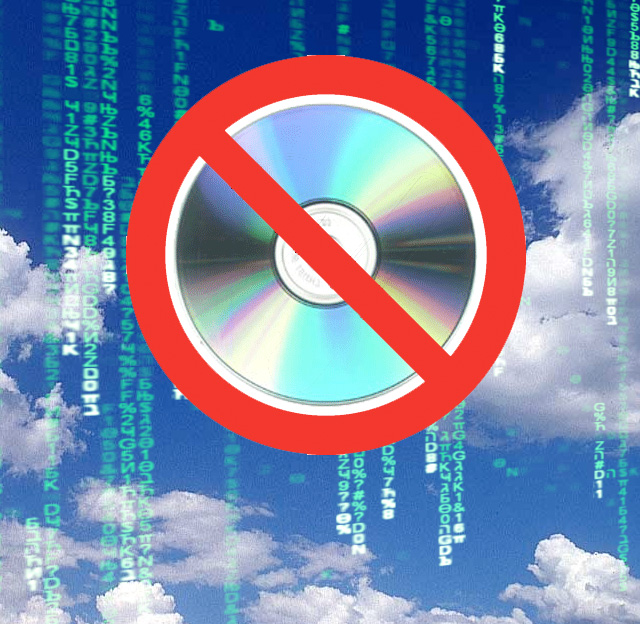Death to the Disc
 Last year Blu-ray won the battle against HD-DVD. But this may well have been a battle in vain as I can see there being little use for any ‘locked’ format in the near future.
Last year Blu-ray won the battle against HD-DVD. But this may well have been a battle in vain as I can see there being little use for any ‘locked’ format in the near future.
There is a good chance Apple may pull optical discs completely on future Macs. It seems this is the way they are slowly heading. They have snubbed Blu-ray and are now turning their backs on DVD authoring software. As backup becomes more and more solid state drive centric and the price drops on such, then there will be less and less use for disks. Eventually it will be like the crystals used in Superman!
So cloud computing is being pushed more and more as the solution for consumers and it has it’s advantages. Your files should be safer and easier to manage and backups are something you don’t even have to think about. For work, collaboration across the world becomes even easier. This is for sure the next phase of human / computer evolution whereby our technology becomes more and more invisible. These are exciting times for geeks like me! Ignoring though for now the bigger picture of how technology moves everything from money to chips and images to databases, let’s just look at the area of personal file backup and moving entertainment between devices.
This will become easier and easier with faster broadband speeds until eventually it becomes instant. Then it is ‘bye bye’ to the progress bar! Sure, cloud computing can easily now handle electronic paperwork such as text documents, spreadsheets and databases, but more processor intensive applications such as video editing will take a while to get to that stage. In terms of moving these media files around though the cloud makes sense, even if the cloud is your own local cloud of going from your computer to your television. This is all very doable right now with the likes of media PCs, Apple TV’s etc and as more and more devices are fitted with WiFi and Bluetooth then wires go by the wayside. All this technology has been steadily making ground over the past few years. It has been lapped up by the early adopters and has slowly infiltrated the masses via iPhones and easier to use mobile phones. But still, the majority of people either don’t realise what their toys are capable of already doing or are just not interested. So here is the dilemma of sorts. Is technology moving too fast? New technology arrives one year and is obsolete the next. But this is the way it should be, because the dilemma itself solves the problem. The masses get more educated about technology because it moves faster than fashion (the question of “is technology fashion?” is one for another day!). With cloud computing the issues of obsolete technology and new formats should become well, obsolete. It will all happen in the background, all we need is a way to see it and a way to navigate it.
So the future is bright and clutter free, but there are still hurdles. The good thing is that life become more automatic but the other side of the coin is one of trust. There are many companies between you and that cloud and then there is the company who own the cloud. Do you trust these companies more than you trust yourself? What if access to the cloud were to become restrictive? Would ISP costs increase as they’re being the gatekeepers to your information?
Of course business will always want a hard copy (even though it is soft.. no need to waste paper.. you get the idea!) so perhaps the prosumer and professional markets will still have use for local storage and if this becomes an exclusive market then the costs of physical storage devices will grow.
Onwards to the aether!

